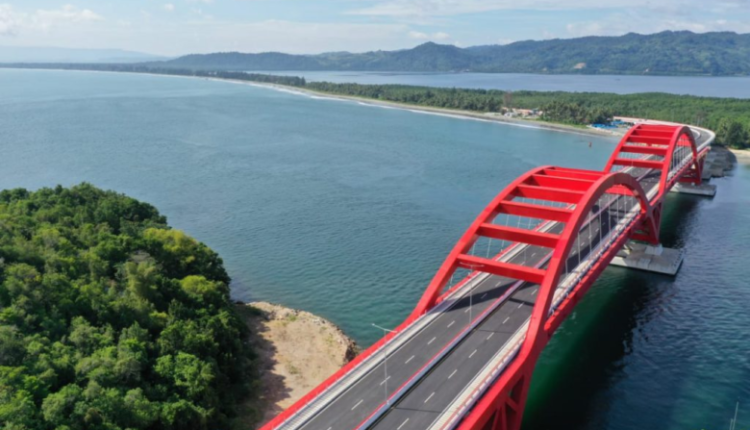Appreciating the Government of Papua’s Advancement Through Development
By: Jaya Kusuma)*
Along with the government’s efforts to accelerate development in the Cenderawasih Land, various infrastructure initiatives and projects have been launched to improve the quality of life of the people of Papua. Appreciation of government measures in advancing Papua through development is very important, as this is part of the national effort to create equal well-being throughout the country. Construction of roads, bridges, and other public facilities has begun to improve interregional connectivity. With new roads connecting remote areas with economic and government centres, public access to basic services such as health and education is expected to increase. The construction of bridges connecting small islands also plays an important role in facilitating the mobility of goods and people, which will ultimately support local economic growth.
The head of the Regional Development Planning Agency (Bappeda) of Jayapura District, Parson Horota, said the Government of Rajapura County (Pemkab) has prepared construction for the next 20 years through the Long-term Regional Development Plan (RPJPD) 2025-2045. This RPJPD is very important because the step or direction of national development will be connected with the development of the region.
This mid-term development guided by the UNDP will provide significant benefits such as economic stability, improved infrastructure, and human resource development through education and training that can help improve the quality of people’s lives, create jobs, and improve access to and quality of health services.
Meanwhile, long-term development focuses on sustainable economic growth and social well-being with investments in large-scale infrastructure, environmental sustainability, and technological innovation to ensure social and political stability and meet the needs of future generations by creating a strong foundation for long term progress and prosperity.
In addition to physical infrastructure, the government also pays special attention to the development of human resources in Papua. Education and skills training programmes have been launched to enhance the capacity and skills of the local labour force. By providing better access to education and training, it is expected that the younger generation of Papua will be better prepared to face the challenges of the labour market and make a significant contribution to the economic development of the region. Several new schools and training centres have been built, and various scholarships have been awarded to encourage Papua’s children to pursue higher education.
Pj Regional Secretary (Sekda) of Papua Province, Derek Hegemur said that the highly qualified and competitive Human Resources (SDM) is believed to be able to accelerate and address issues in the field of education and health, through the affirmation programmes that have been prepared by the government of Papua province. It will extend services to the community with the maintenance of medical equipment, medicines, administration of services and patient care in hospitals as well as street care at hospitals.
In the area of people’s well-being and social and cultural, the Government of Papua is committed and has the same understanding as the DPRD of Papua to prioritize the development of SDM in particular Papua Native people in the field of education and health through affirmation programmes. This requires policy support and synergy and coherence in implementation. The Government of Papua continues to give priority to accelerating the development of regional infrastructure and infrastructure facilities in support of the opening up of isolated areas that can connect settlement centers and commodity-based economic centers of excellence.
Local economic development is also a major focus in government efforts to advance Papua. Community economic empowerment programmes, such as aid to micro and small, have been launched to support local entrepreneurs. This support includes initial capital provision, entrepreneurial training, and other technical assistance. With this support, it is expected that small and medium-sized enterprises in Papua can thrive and create new jobs for local communities. These initiatives are also expected to reduce dependence on less sustainable economic sectors and enhance local economic independence.
Not least, the government also prioritizes environmental conservation in every development project in Papua. Awareness of the importance of keeping Papua’s abundant natural wealth an integral part of the development strategy. Programmes aimed at protecting forests, wildlife, and other natural resources have been implemented to ensure that development is not at the expense of the environment. With a sustainable approach, development in Papua is expected to bring long-term benefits without damaging existing ecosystems.
Equitable development throughout the country is one of the main pillars of achieving national prosperity. By continuing to support and monitor the implementation of various development programmes, the positive results of these efforts are expected to be felt by the entire layer of Papua society.
Overall, the progress achieved through development in Papua is a reflection of the government’s commitment to creating social and economic justice. Appreciation for this initiative should be given as a form of support to continue and strengthen future development efforts. With continued close collaboration between government, society, and the private sector, Papua is expected to develop into a more developed and prosperous region, as well as to make a greater contribution to the progress of Indonesia as a whole.
)* The author is a student who lives in Surabaya
